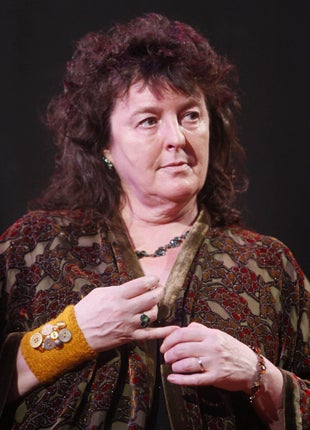SATs pressure turns children off reading, say authors

Your support helps us to tell the story
From reproductive rights to climate change to Big Tech, The Independent is on the ground when the story is developing. Whether it's investigating the financials of Elon Musk's pro-Trump PAC or producing our latest documentary, 'The A Word', which shines a light on the American women fighting for reproductive rights, we know how important it is to parse out the facts from the messaging.
At such a critical moment in US history, we need reporters on the ground. Your donation allows us to keep sending journalists to speak to both sides of the story.
The Independent is trusted by Americans across the entire political spectrum. And unlike many other quality news outlets, we choose not to lock Americans out of our reporting and analysis with paywalls. We believe quality journalism should be available to everyone, paid for by those who can afford it.
Your support makes all the difference.Almost 100 children's authors and illustrators have signed a letter supporting heads and teachers in their campaign to get rid of national curriculum tests for 11-year-olds.
The signatories, who include the Poet Laureate Carol Ann Duffy and the children's authors Philip Pullman, Michael Morpurgo and Michael Rosen, say children are being switched off from reading as a result of the tests.
Headteachers are facing growing pressure to call off a planned boycott of the tests, due to be taken by 600,000 children in maths and English next month. Some local authorities have threatened to take dock heads' pay if they are in the boycott. Others have told governors they should take disciplinary action against heads.
The authors say they are "concerned by the growing diminution of the school curriculum" by the national curriculum SATs tests. They add that children spend most of their year – at ages seven, 11 and 14 – preparing for the tests.
"We think that children's understanding, empathy, imagination and creativity are developed best by reading whole books, not by doing comprehension exercises or short excerpts and not from ticking boxes or giving one word answers," they add. "It is our view that reading for pleasure is being squeezed by the relentless pressure of testing and we are particularly concerned that the SATs and the preparation for them are creating an atmosphere of anxiety around the literature."
Pullman said: "Resources now being channelled into testing could and should be redirected towards libraries, the training of librarians and book provision. The SATs are making it seem as if teaching should be limited to the tests. Because of the pressure of league tables, heads are under pressure to do well. They exert pressure on the teachers and the teachers on the pupils. Children are made miserable and are not learning."
He added: "I have always thought everything we ask a child to do in school should be worthwhile. It is intrinsically worthwhile writing a story, it is intrinsically worthwhile writing a poem. It is not intrinsically worthwhile filling in forms or answering multiple-choice questions."
Headteachers at the National Association of Head Teachers conference in Liverpool echoed the authors' concerns yesterday. The boycott is also supported by the National Union of Teachers.
Gail Larkin, of Auriol junior school near Epsom in Surrey, said that after she had announced they would not be doing the SATs tests this year, the development of children's writing had been "phenomenally better."
She said that – in previous years – they had concentrated on writing short stories as that was what was demanded by the tests. "This year it has been fantastic; they have produced almost novels where children are able to develop their writing over a period of time. The standard this year is far beyond anything we have achieved before."
Roy Tedscoe, of Coleraine Park primary school in Haringey, north London, said the tests led to a "huge stifling of any kind of creative curriculum".
The Local Government Employers' Organisation has issued guidance, saying heads could be docked a day's pay if they boycotted SATs. Education Leeds urged its governors to consider disciplinary action against heads who joined the boycott. Schools Secretary Ed Balls has written to school governors urging them to consider sending heads home for the SATs week and bring in a "competent" alternative to administer the tests.
Steve Watkin,from Leeds, said he would ignore an instruction to go home and insist any "competent" alternative was given a Criminal Records Bureau check and had a passport. "By the time we had gone through all that, we would have got the children out through the back door."
Mick Brookes, general secretary of the NAHT, said: "My colleagues are not militant people. Generally speaking, headteachers are conservatives, at least with a small 'c'. But we are not going to stand idly by while our members are threatened with disciplinary action."
Join our commenting forum
Join thought-provoking conversations, follow other Independent readers and see their replies
Comments